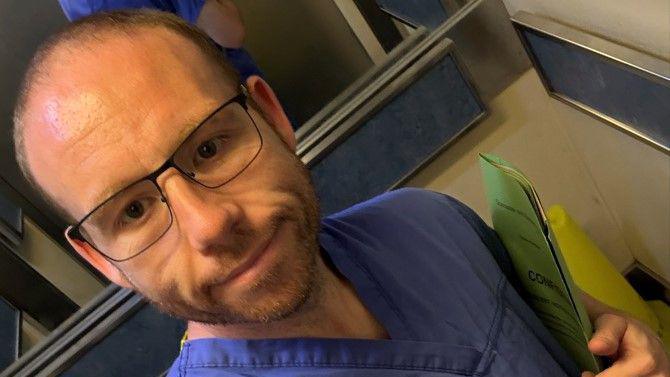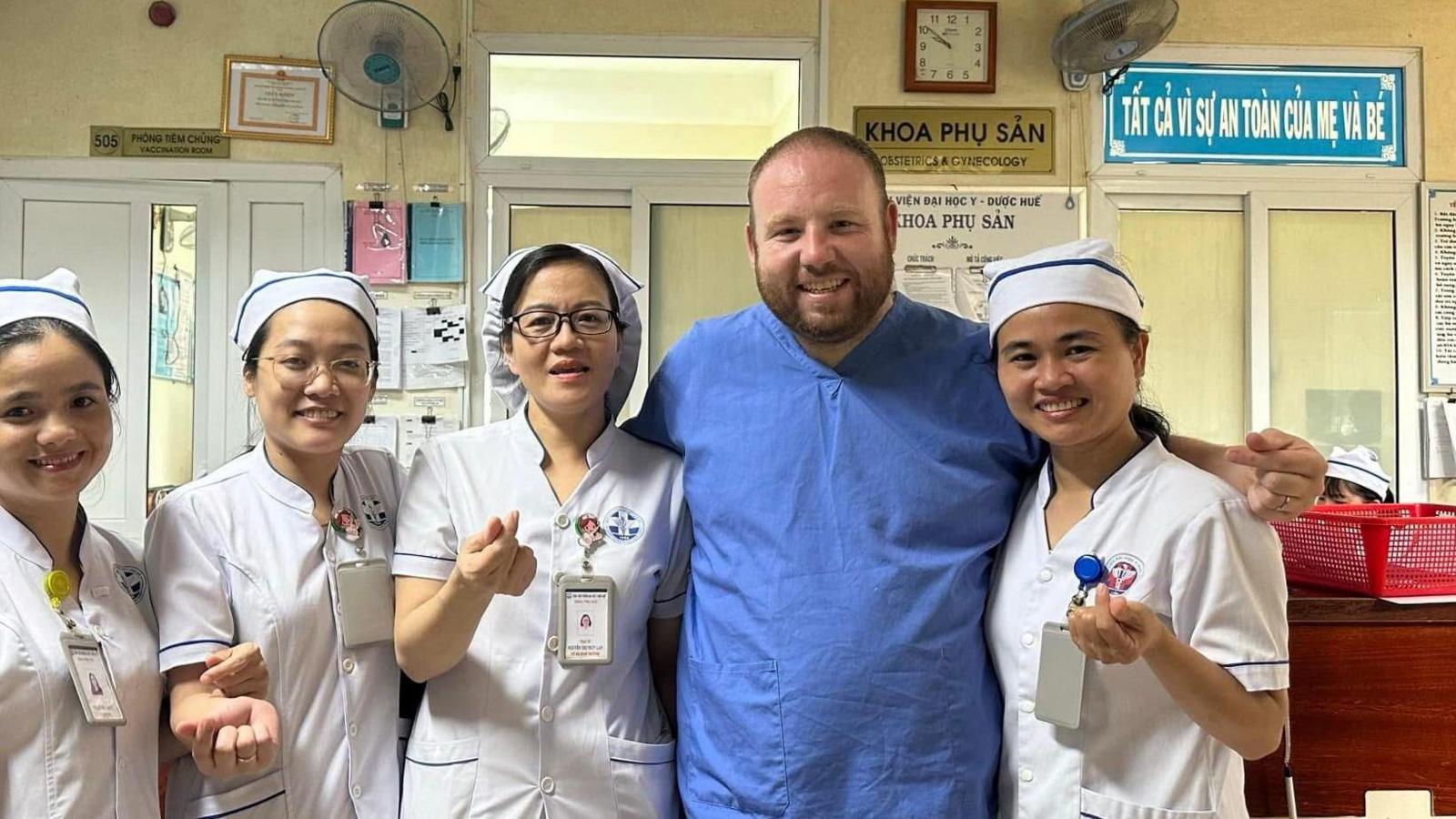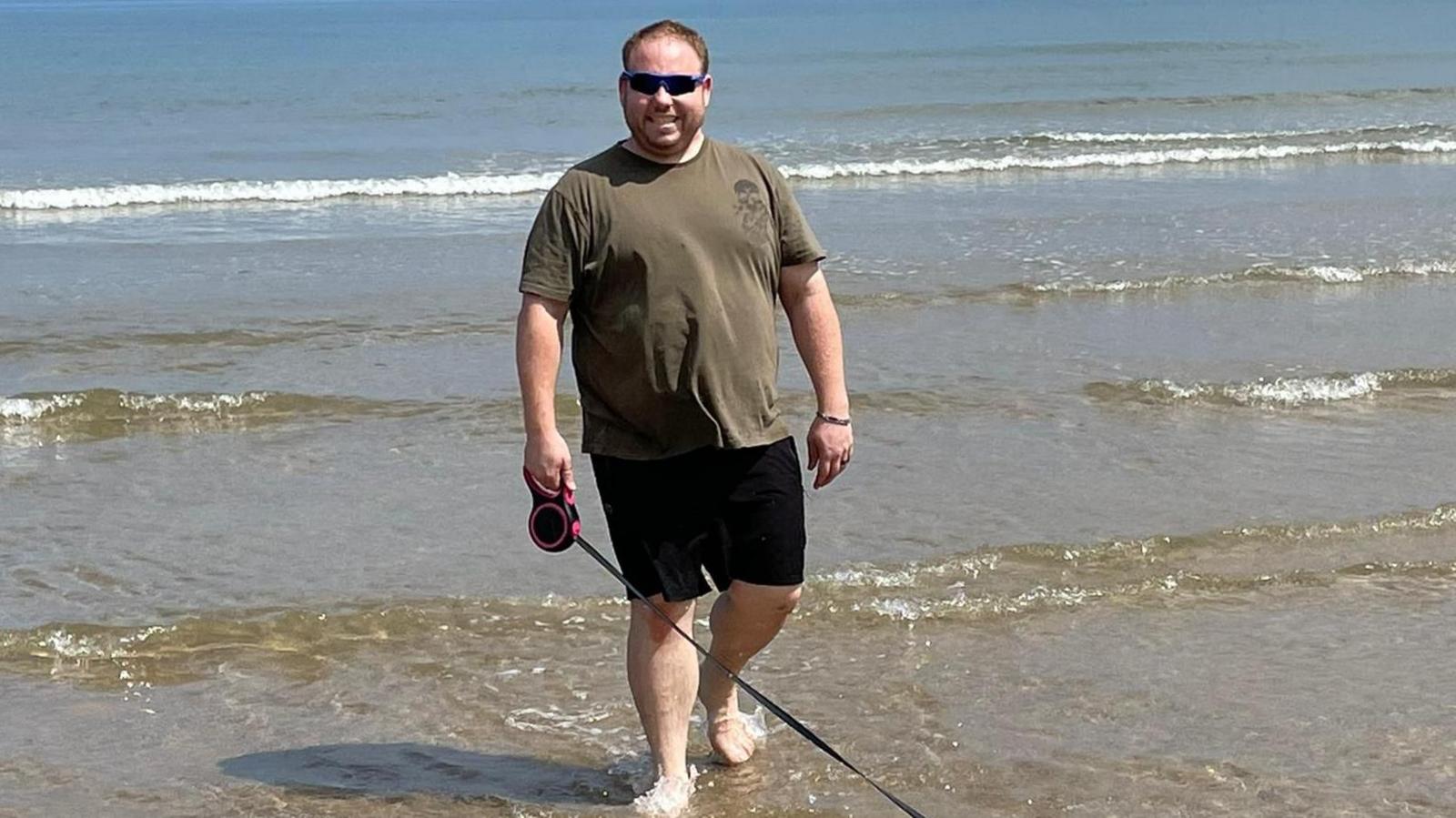'I shed 11 stone to make sure I was ready for any emergency'

Lee Gigg lost seven stone after gastric sleeve surgery and taking up running
- Published
"I ran for an emergency at work one day and and it was only about 20 metres - but I was sweaty, out of breath and no use to anyone."
Midwife Lee Gigg weighed 23 stone (156kg) at the time and it affected his ability to do his job properly as well as his mental health. He could not stand still for long periods because of back pain.
The 38-year-old only qualified as a midwife in September 2024 and had previously worked in insurance.
He told the BBC it was the "sedentary nature of the job", coupled with eating out of boredom and feeling low, that led to his weight creeping up.
"I would eat to feel better. When I had a bad day, I would order a huge takeaway - it was a way of coping," he added.
But after completing his midwifery training, he could see how it was affecting the care he was able to provide and he realised he had to do something drastic.

Lee Gigg was 23 stone (146kg) before undergoing gastric sleeve surgery
"I knew I could not be front line defence in an emergency at this weight", he said.
So 10 days before starting his new role at Doncaster Royal Infirmary, he flew to Turkey to have a gastric sleeve fitted.
During the procedure he had about 80% of his stomach removed, meaning he was forced to eat less.
"I lost about a stone in the first three days, then it was gradual. I don't feel as hungry anymore and I am now down to 12 stone.
"I have so much more energy, have more patience at work and I'm not falling asleep the minute I get home," Mr Gigg said.
He has also taken up running and is hoping to raise £1,500 to go towards a new electrocardiogram (ECG) machine for the maternity unit at Doncaster Royal Infirmary, through Doncaster and Bassetlaw Teaching Hospitals Charity.
The machines cost £2,500 and Mr Gigg is hopeful he will be able to raise enough money to pay for a new one outright.

Mr Gigg said his previous job in insurance meant he snacked too much out of boredom
With a second ECG machine, the unit would be able to speed up care by carrying out heart checks on patients without borrowing equipment from other departments at the hospital.
Mr Gigg's plan is to run 124 miles (200km) throughout the month of August and he is currently at the 80 mile (129km) mark.
"I started training at the gym three months after the operation and started running in January - a minute at a time - and one day decided to do a 5k.
"I gradually increased the distance and wanted to prove to myself I could do this - and the reward is helping the hospital and reaching my target."
Mr Gigg, who is originally from Bristol but has lived in South Yorkshire for 10 years, said his surgery has also led to other positive lifestyle changes.
"I enjoy horse-riding and seeing my friends and family more and I can just be more me - it's very freeing."
Mr Gigg's husband and his colleagues think he is doing "amazing" but also "a bit crazy" - especially after he runs home straight after a 13-hour night shift.

Mr Gigg said he has so much more energy now he is down to 12 stone (76kg)
When asked why he wanted to switch careers to midwifery, Mr Gigg said: "I wanted to help women go through one of the hardest things that any person can go through.
"It's a magical experience seeing a family being created and I wanted to be part of that."
Suzy Brain England OBE, chair of the board at Doncaster and Bassetlaw Teaching Hospitals, said: "We're so inspired by Lee's story.
"This is an incredible personal challenge that will leave a lasting legacy for maternity patients."
She added: "His determination and willpower to take on such a massive feat is inspiring and we wish him all the best with his remaining miles."
Mr Gigg said he hopes he can inspire others to lose weight and to change careers if they are unhappy.
"Life is just too short," he added.
Get in touch
Tell us which stories we should cover in Yorkshire
Listen to highlights from South Yorkshire on BBC Sounds, catch up with the latest episode of Look North